There is a row of shuttered shops opposite an abandoned dusty ground on the outskirts of Ajmer. On any routine day, this is a very quiet place with an occasional motorcycle or a Bolero taxi, lumbering along on the half-paved roads that lead to remote and distant hamlets. But, every day, a group of 4-5 women will walk into a shop that opens its doors quite early. This shop belongs to Meenu who sells clothes, bags, and almost everything that can be stitched using a sewing machine. The women come to attend a training program in stitching and mending, that Meenu runs as one of the trainers of Rajasthan Samgrah Kalyan Sansthan (RSKS), which is running an extensive women-focussed holistic model of socio-economic development in Ajmer district of Rajasthan.

Meenu was a student in one of these programmes more than 10 years ago and using the skills she picked up; she opened her shop in 2020 and is now a member of their board as well. Today, she teaches hundreds of other women in RSKS livelihood training centres as far as 50 kilometers from her home. Her journey is even more remarkable because Meenu does not have legs. Her work with the women has made her a household name in her locality. When she has to travel to different centres across the district, she often takes a bus from the nearest bus station, around 2-3 km from her shop. When she began, getting to the bus itself was a challenge. Now, almost every passerby is willing to give Meenu a lift. They are either her customers or her students.
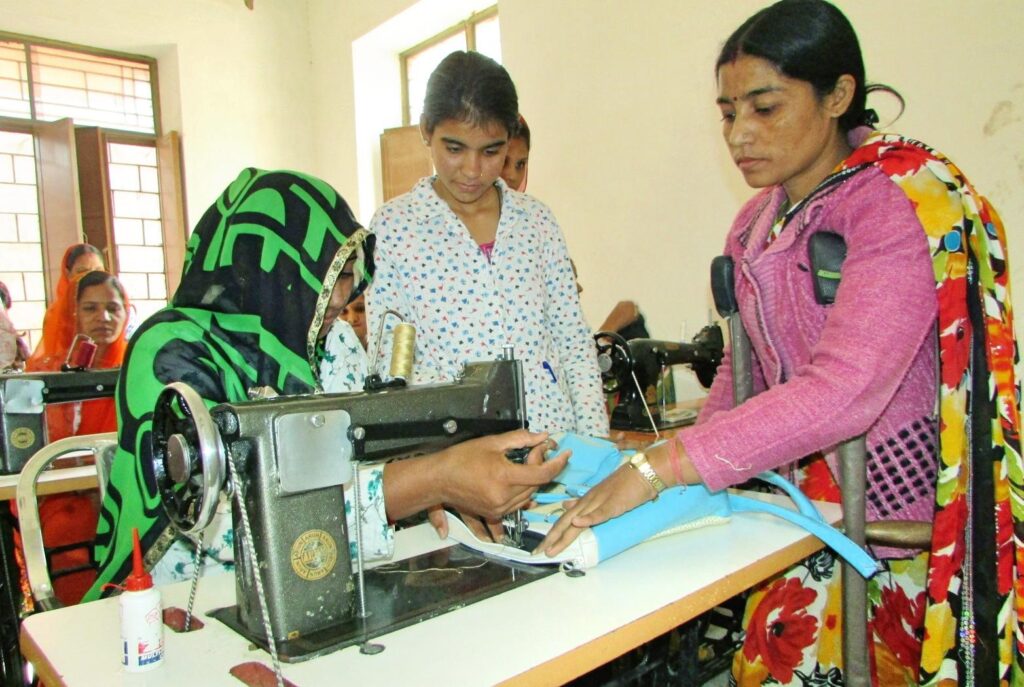
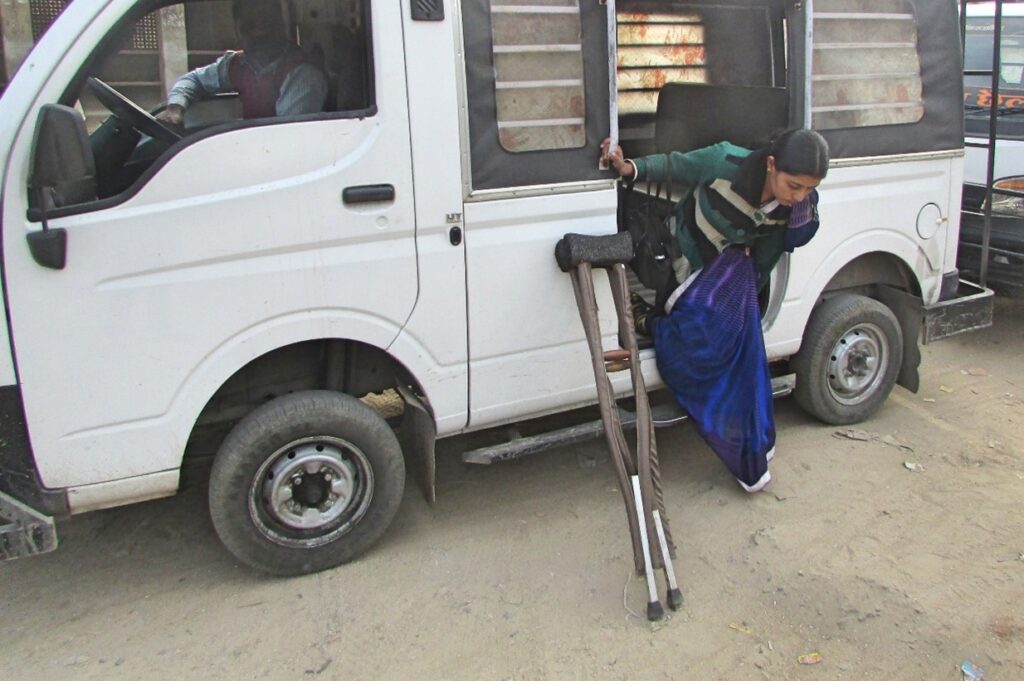

RSKS has been working in Rajasthan for over 30 years. Before 2014, they used to run their various interventions in livelihood training, education, women empowerment, and support to people with disabilities in various districts, coordinating with state and district administration. In 2015, they altered their approach to making it more targeted and community-focused. “After 2014, we concentrated our efforts in Ajmer, because we wanted to have a strong foundation and a base for our operations. We wanted to have an in-depth impact on the communities we are working with”, says Dr. S.N. Sharma, CEO of RSKS. The unique feature of this approach is that it allows RSKS to build deep-rooted relationships with individuals, who then become agents of change, Meenu being one example.
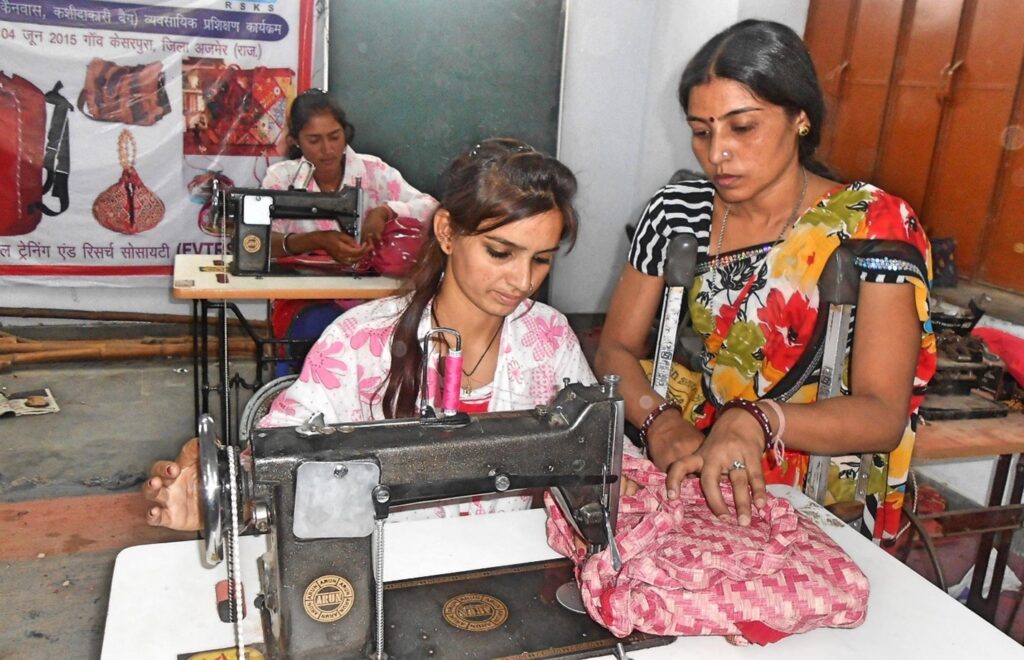
LIVELIHOODS
RSKS runs its livelihood programme under three verticals – Agricultural, Non-Agricultural, and Direct Livelihood Support – with a focus on catering to the needs of the people. The team makes a baseline assessment of skills relevant to local markets through a door-to-door survey in the identified area. Making the entry process participative, the survey also considers the training demands of target beneficiaries. Skill development through this model provides individuals with an opportunity to tap into hyperlocal markets. The RSKS master trainers are hired to teach skills identified by the beneficiaries themselves, which include running boutiques, clothing repair, handicrafts, etc. This approach makes the local community a partner in the skill development project and gives them a voice in tailoring the intervention to their requirements.
The rigorous RSKS training regimen involves an intensive 3-month training programme and comprehensive time commitment which ensures the retention of skills in the long term. The training module runs for 5 hours a day, including 1.5 hours for a theoretical session and 3.5 hours for a practical session. Trainers are residents, several of whom run businesses of their own. This approach allows women to supplement family incomes through entrepreneurship, often providing essential support to families in need, and also financially empowers the trainees. It was a lifeline to Meenu, who graduated from the training programme to open her shop, and is now a trainer herself. RSKS also teaches women farmers about Azolla farming, organic farming, animal husbandry, etc. to provide them with new ways of generating income and reducing dependence on income from traditional farming. The Direct livelihood supports vertical targets the most vulnerable groups, including widows, disabled and orphans, who are identified through the baseline workshop and given some training on a specific type of employment. In addition to the training, these groups have been provided direct livelihood support through finance or equipment to start their businesses.
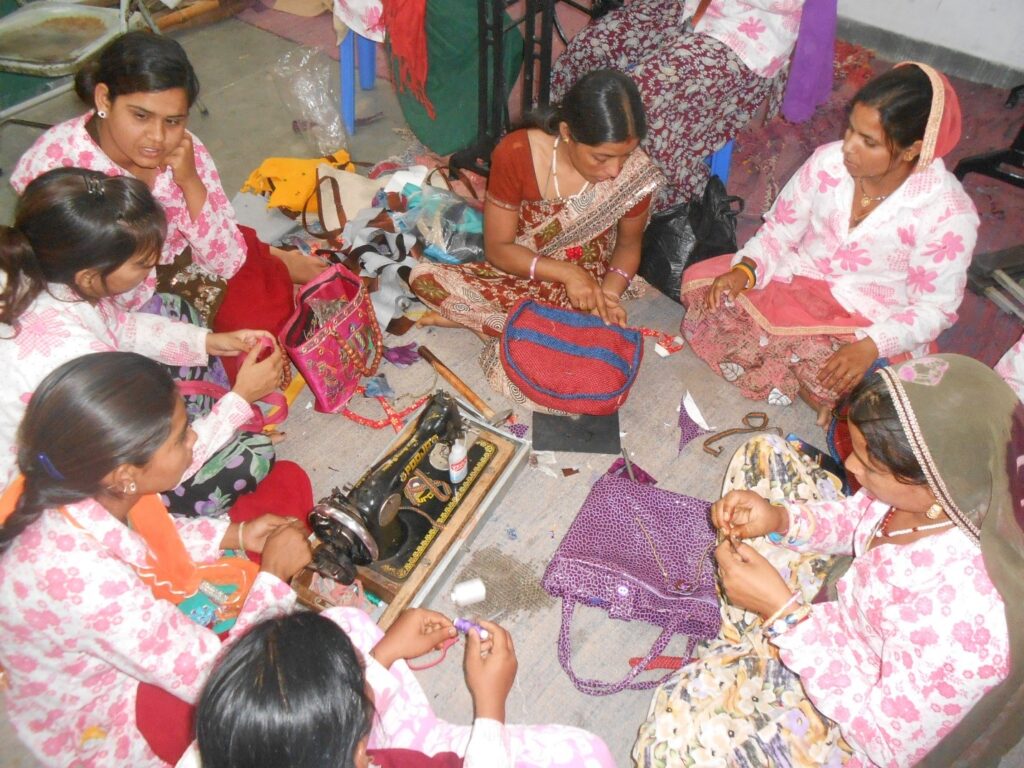
The RSKS Entrepreneurship Development Programme (EDP), taught as part of the module, is one of the unique aspects of their training module. In contrast to traditional skilling programmes that are being run by civil society groups across India, this element of the RSKS skill development programme ensures that the beneficiaries do not need any external support to market their products or run their businesses. As part of the EDP, women are taught to harness networks within their local community and family ties to practice skills such as marketing. In semi-urban and rural areas, which are often characterised by hyperlocal and fragmented markets, the initial outreach to customers is through word of mouth. The awareness of local conditions has helped RSKS translate training programmes into entrepreneurial ventures by their beneficiaries. The skills taught include the basics of running a business such as maintaining records, tracking orders, and customer acquisition, which helps build the confidence of beneficiaries and enables them to become self-driven entrepreneurs.
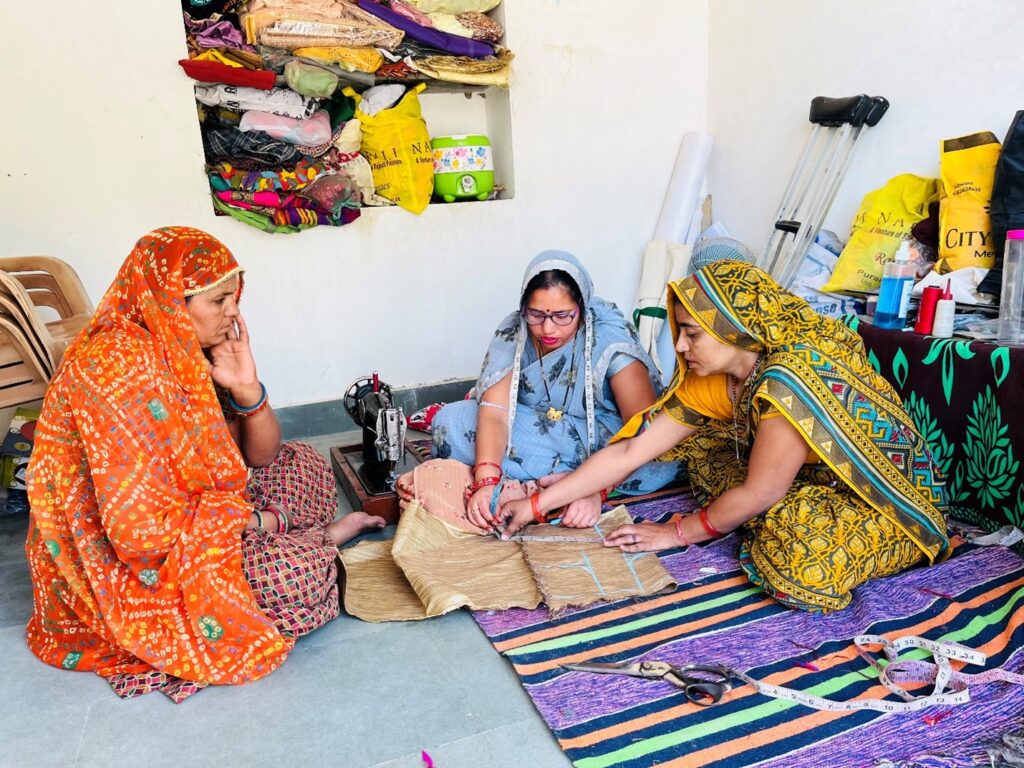
The project also provides market linkage support to trainees by partnering with local government and non-government organisations. RSKS organises job fairs, flea market-style bazaars, exhibitions, etc. where their graduates can display their products, and services for customers. Several women received their first orders for products based on samples displayed at these fairs. “The best thing is that as an RSKS student, I can start earning from the learning stage itself. Our students can prepare samples that are displayed in the RSKS Bazaars and exhibitions, and people give them orders based on these samples. This gives us a great morale boost, as we can start getting a return for the time we have invested in the training programme, very early on”, says Meenu as she proudly shows us her products.
A key driver of the success of the RSKS livelihood programme in translating training into sustainable businesses is the group dynamic of the trainees. All training programmes are held in groups and RSKS trainers seek to preserve this group as a source of support for new entrepreneurs. At a training centre, close to 50 women gathered to talk about their experiences as a group. The members included women and girls who were facing individual hardships, which often led to a downward spiral in terms of income and poverty. A 19-year-old girl who had lost both her parents now had a room full of guardians and could think of putting herself through college based on the skills she had learned in the training program. Another trainee who had lost her husband, the sole earner in her family during the second wave of COVID-19, is now thinking of opening her boutique based on the skills she had learned at RSKS. These ties also become important for beneficiaries to reach out to wider markets and fulfill bulk orders. Harnessing digital technology, women are all a part of common groups on various social media platforms, where they share orders and requirements and clarify doubts. This market linkage and collaborative approach allows newly established businesses to survive lean periods of demand and grow organically.
Taking forward this approach of mobilising group support for the benefit of the individual, RSKS has also expanded its interventions to target other vulnerable groups, such as people with disabilities.
ASSISTANCE TO DISABLE PERSONS
Rajasthan brings forts on barren hills, dry shrub forests, arid skies, and undulating sands to mind. The bumpy ride to Dodiyana village is far removed from this image. As one sets out from the city centre in Ajmer, the roads become narrower and decrepit, but are surrounded by fields of white roses that are offered up at the shrine of Khwaja Moinuddin Chishti in Ajmer. Small hamlets appear every few minutes and are dotted with small vegetable and fruit sellers and the odd Beti Bachao Beti Padhao (Save the girl child, educate her) slogan painted across the walls. There is just one path to Dodiyana, mostly of uncemented road, but at the local Panchayat Bhawan (administrative centre), one sees a buzz of activity. RSKS, in consultation with village authorities, has brought together the people of the village to support specially-abled people, one of the most vulnerable segments across the world. Over 26.8 million such persons live in India, making up more than 2.2 % of the population.
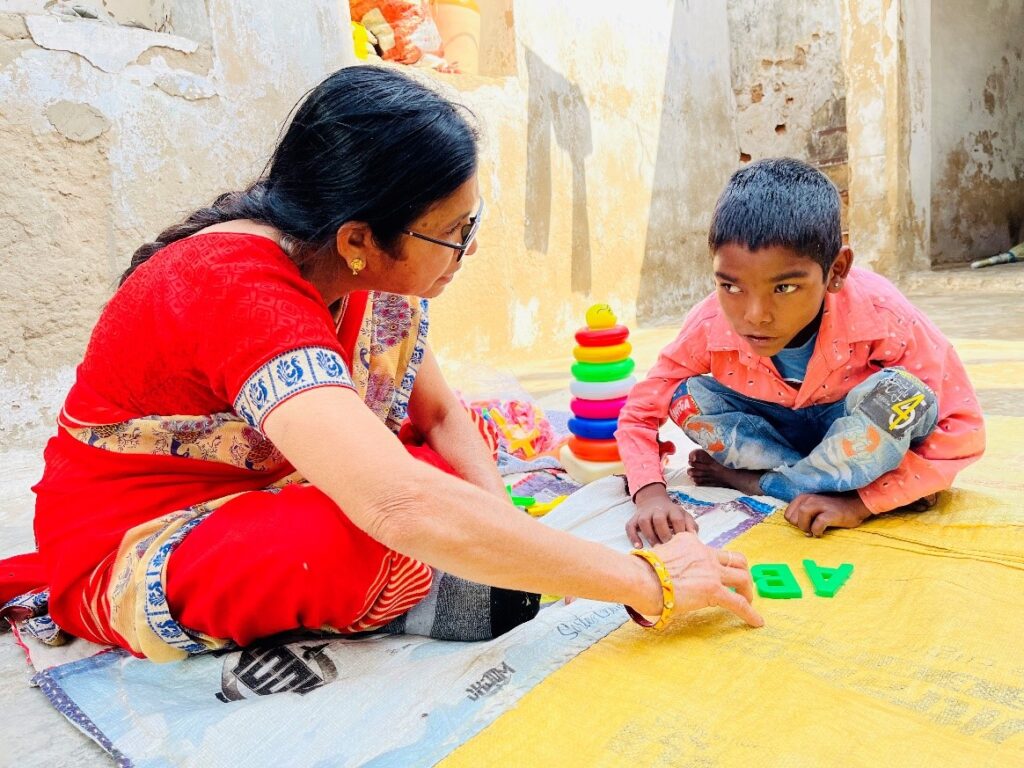
More than 18 million live in rural areas, which means that government authorities find it difficult to deliver welfare programmes to them. Lack of access to facilities such as schools for specially-abled, trained medical/support personnel, etc. is compounded by inadequate understanding of the needs of differently-abled persons and often leads to discrimination and lower health and education outcomes. RSKS addresses this gap through the power of the community itself. Individuals such as Meenu are priority beneficiaries in the RSKS interventions, but, in 20 remote rural villages, including Dodiyana, RSKS has formed Disabled People Organisations (DPOs) in coordination with village authorities. Members of this group include disabled persons and their families, RSKS team members, and public representatives. The group holds regular meetings to ensure that no disabled person is excluded from government support schemes and plays a crucial role in the identification and support of such persons. This involves training all those involved in the care and support of specially-abled individuals, including rural families who may not have much experience with disability. Taking the intervention further, RSKS has also built child support groups and teacher support groups in schools to provide a friendly environment for specially-abled children. The awareness created by this endeavor encourages the disabled people and their families to speak about their day-to-day difficulties at the meetings of the DPOs, held in the Panchayat Bhawan.
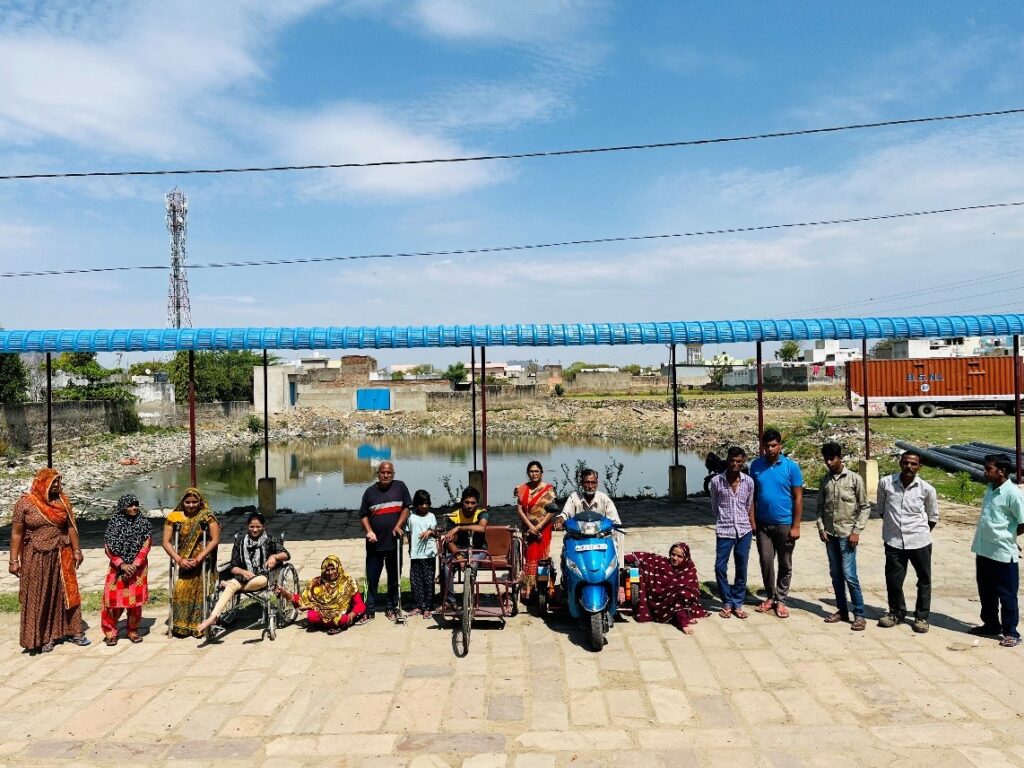
On several occasions, RSKS has ensured the registration of these individuals under targeted government assistance schemes in coordination with the local authorities. This intervention has created a community sensitised to the needs of the specially-abled. The DPO in Dodiyana is driven by an RSKS coordinator, Chandu Giri Goswami, who is the first point of contact for all the disabled persons nearby. Her own experience with domestic violence has driven her to work for the betterment of others. Tears well up in her eyes as she speaks of her past. “I was abandoned by my husband for a second wife and was almost suicidal at one point in time. I had nowhere to go so I returned home, but I didn’t know what to do. I spent the entire day at home with my young son and I could see no way to survive”, she says. Chandu was stuck in a downward spiral, when RSKS visited her home during a door-to-door survey for their livelihood program. This coincidence, showed her the way forward. “My mother convinced me to sign up for livelihood training and go for the RSKS classes. This gave me a sense of purpose, and after the programme, I asked if I could join them to help others. Now I know that everyone in the DPO here loves me. I can’t wait to see everyone when I come here. When I see their smiles at every meeting when I enter the room, I feel fulfilled.” Speaking of her son, she says with pride, “He is the most important person to me. He studies English and is going to go places.” Chandu’s eyes are still moist, but a smile has broken out across her lips.
EDUCATION
Chandu and her son are an example of how education leads to inter-generational mobility. India is a land of aspirations, where education plays a key role in fulfilling the dreams of a young nation. However, girls, to a large extent, have been left out of this aspirational shift in India and across the world. Globally, 129 million girls are out of school, including 32 million of primary school age, 30 million of lower-secondary school age, and 67 million of upper-secondary school age. (“Girls’ education”)
Taking cognizance of this, the Indian central and state governments have introduced measures to increase the enrollment of girls in education through schemes such as Beti Padhao Beti Bachao, scholarships, and other targeted schemes. RSKS and their Pathshalas (school in Hindi) and “Education for Every Girl Child” initiative is an example of civil society organisations supplementing state efforts to bring girls back to school and provide accessible educational facilities to children in remote areas. Pushpa Kanwar runs one such education center in Majitiya, a small settlement lying across a water stream, from the man-made lake Aanasagar with only a single bridge leading in and out. The bridge was washed away some years ago when the water feature flooded during the monsoon.
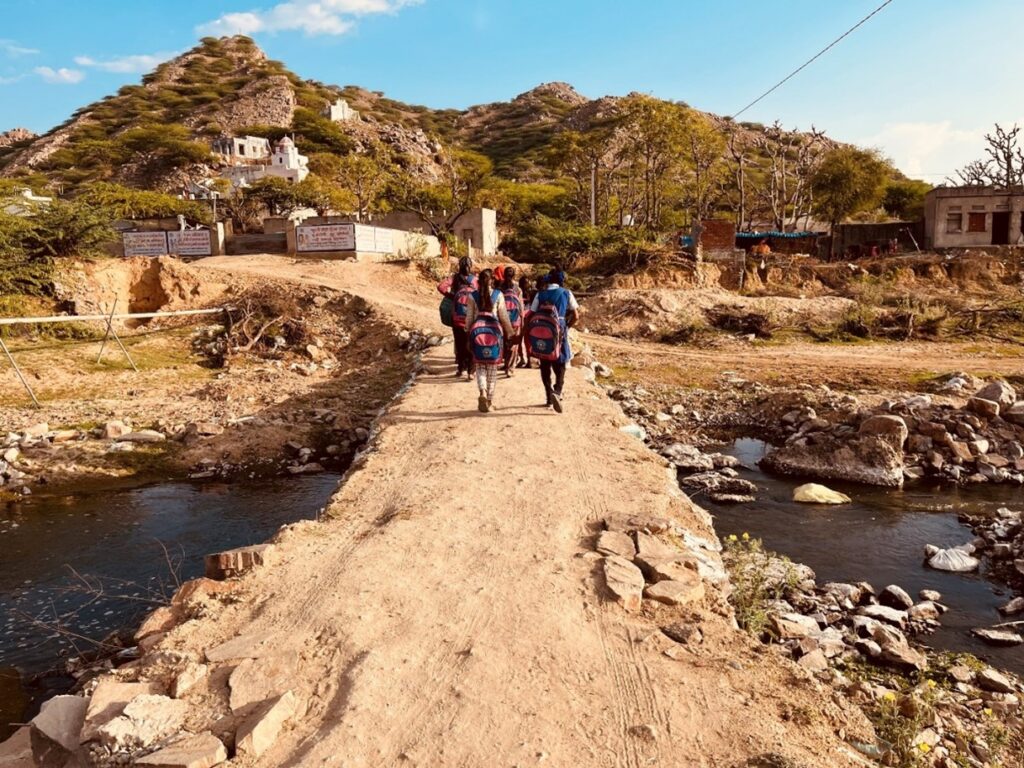
In a story that has become a local legend now, Pushpa insisted on continuing her classes throughout the rainy season that year, often using a rope to get across the flooded stream and reach the village. She has also invested in a car, which she uses to pick up girls from their homes and bring them to the education centers. This becomes crucial for geographically inaccessible places, and for young girls, who have no means of transportation to schools.
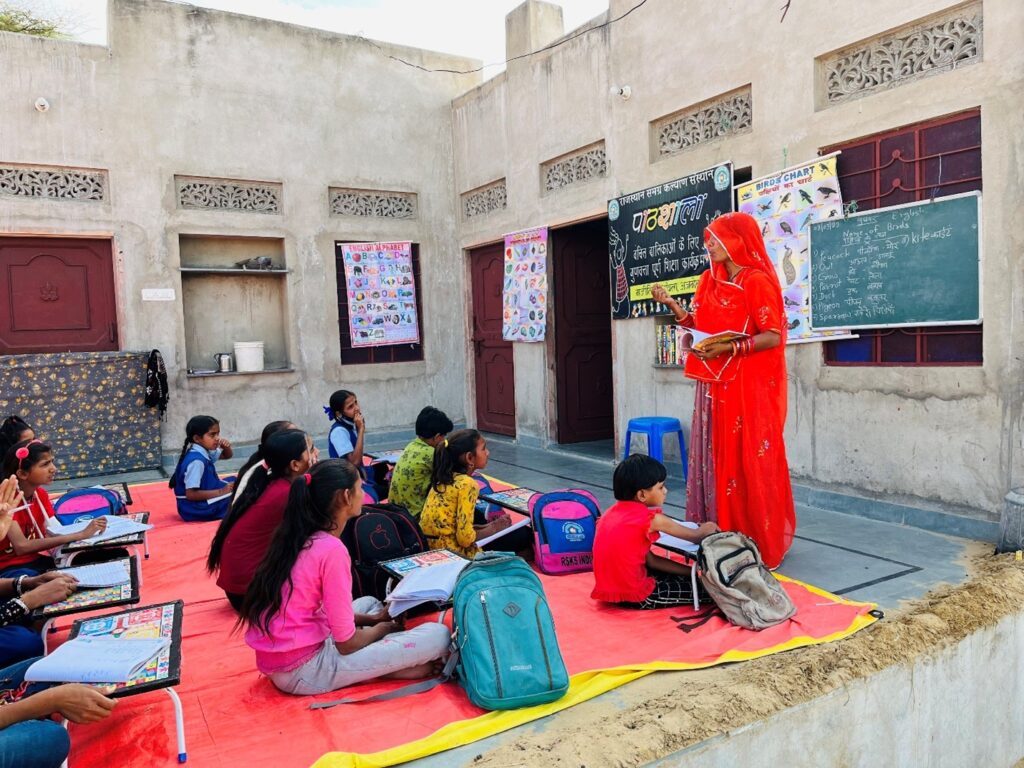
She is just one of the RSKS education centre coordinators who travel several kilometers every day to hold classes on basic English, Hindi, Science, and other subjects. In a country where the quality of education has often been inconsistent, these classes supplement state efforts to improve learning levels. All the RSKS education centre coordinators also work to bring back girls who have dropped out of school education system. Their connection with the community means that they can visit families and reach every last girl who has not had the opportunity to study.
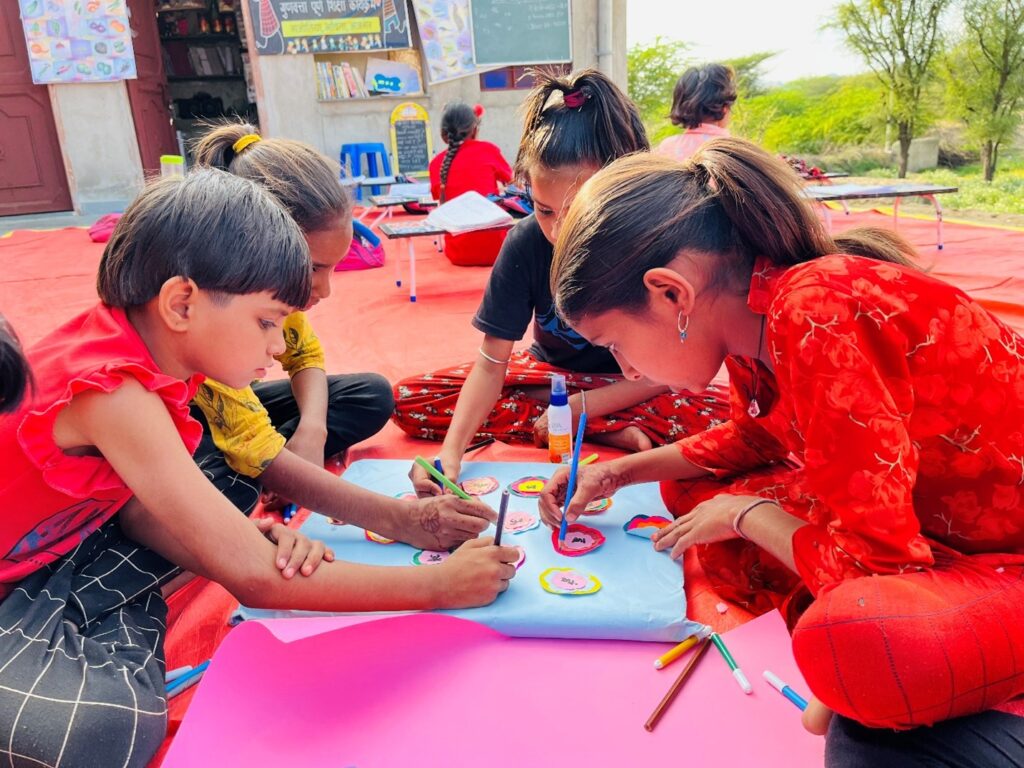
Despite their difficulties, the RSKS team members have taken on the responsibility of working for the community. Pushpa takes a stoic view of her life, saying, “If I had studied further, I would have been satisfied and would not have been married into this family. But, without my support and the salary I earn from RSKS today, my in-laws would have fallen into poverty. I am proud to say that because of my efforts, at least one family has been saved.” Her determination has made her a hero not only to all her students but also to the local community. Pushpa always wanted to become a police officer. When one asks her students about their future, most of them want to join the police, to fulfill their teacher’s dream.
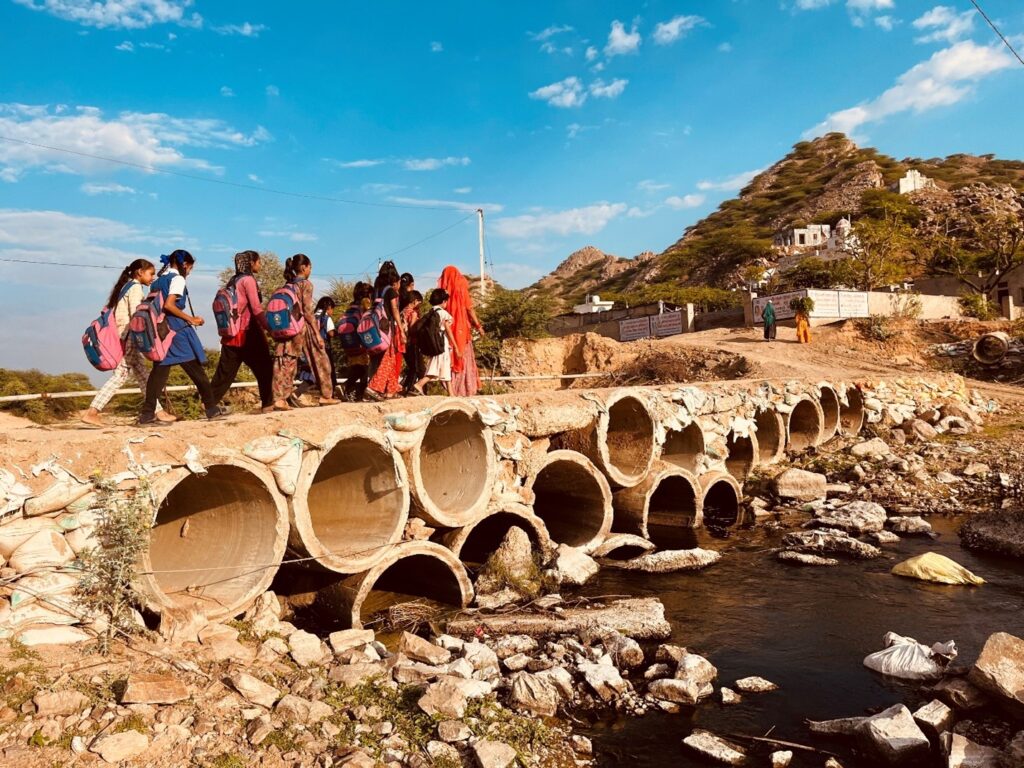
Works Cited
- “Girls’ education.” UNICEF, https://www.unicef.org/education/girls-education. Accessed 24 February 2023.
- NA. “NIL.” Census 2011 India, https://www.census2011.co.in/. Accessed 24 February 2023.
Shantanu Pratap Singh is a civil servant and wildlife enthusiast